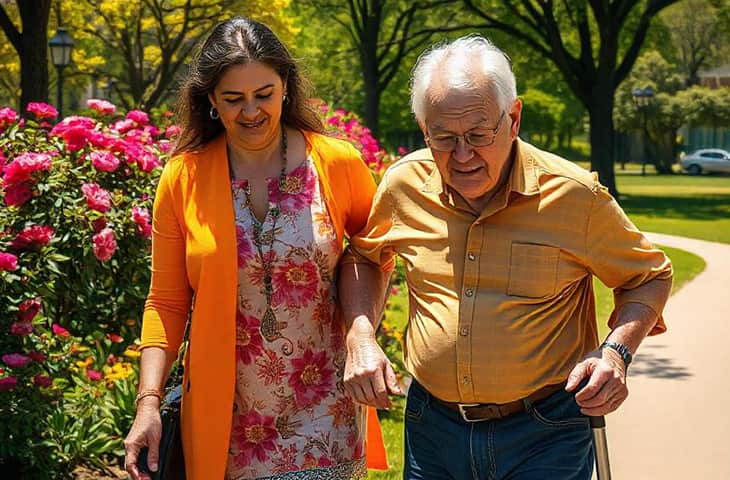7 Essential Caregiving Tips to Support Aging Loved Ones

Learn 7 caregiving tips to help you support aging loved ones with safety and compassion.
The experience of supporting an aging family member is rewarding, though it comes with difficulties. As their needs change, caregivers must focus on providing support that promotes health, safety, and emotional well-being. Here are seven essential tips for effectively supporting aging loved ones while ensuring their comfort and independence.
- Create a Safe Home Environment: It is crucial to ensure the home is free of hazards. To reduce the risk of falls and accidents, remove clutter, improve lighting, and install grab bars in high-risk areas like bathrooms and hallways.
- Encourage Regular Physical Activity: Staying active is vital to maintaining mobility and overall health. Encourage your loved one to engage in gentle physical activities, such as walking or stretching, to keep their muscles strong and improve balance.
- Support Emotional Well-being: Emotional health is just as important as physical health. Spend time with your loved one, listen to their concerns, and involve them in activities they enjoy. Emotional support can prevent feelings of loneliness and depression.
- Maintain Clear Communication: Open and clear communication between the caregiver, family members, and the senior is essential. Discuss care needs and preferences regularly to ensure everyone is on the same page and the senior’s needs are effectively met.
- Help Manage Medications: It’s common for seniors to take multiple medications, which can sometimes be confusing. Assist your loved one with organizing and taking medicines on time to avoid missed doses or interactions between drugs.
- Promote Independence Where Possible: Encouraging independence helps seniors feel empowered and capable. Allow your loved one to make decisions about their care and daily routine, offering assistance only when necessary to help them maintain a sense of control.
- Seek Professional Help When Needed: Caregiving can be overwhelming, and it’s important to recognize when additional support is necessary. Whether it’s professional in-home care, respite care, or assistance from healthcare providers, don’t hesitate to seek help when the situation calls for it.
Effective care for aging loved ones requires a balance of physical assistance, emotional support, and clear communication. By following these tips, you can ensure that your loved one enjoys a comfortable, fulfilling life. For more caregiving resources, visit Boomer News.


